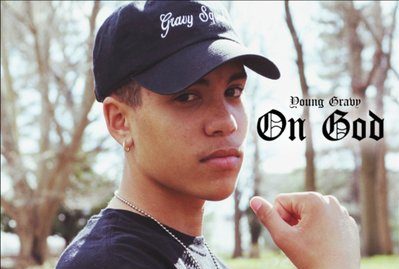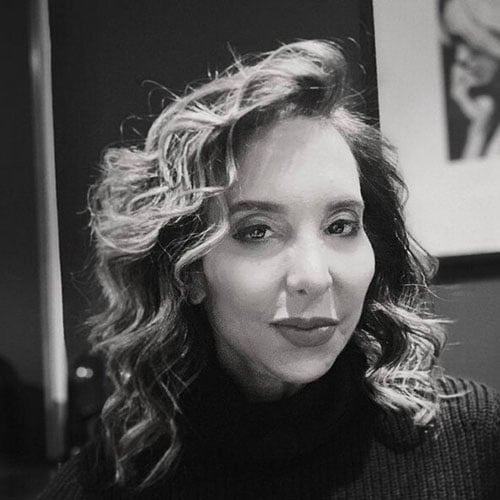 Screenshot from Twitter
Screenshot from Twitter Can one word change history? One video? One person?
Diaspora. It’s not a new word. Jews have heard it all of our lives. But have we ever really felt it? Have we ever used it in such a way to make non-Jews understand it? And have we ever shown how the Jewish diaspora intersects with the African diaspora?
Noah Shufutinsky has thought about such questions for years. And he’s only 19. That’s because, being black and Jewish, he’s been a victim of both forms of racism.
He’s felt racism so profoundly that, as the rapper Young Gravy, he created a brilliant new song called “Diaspora,” a mix of Hebrew and English that not only cuts through all of the faux intersectionality that’s trending today but inspires a revamped pride in Jewish identity.
I’m a proud part of the diaspora
In my heart I hold Jerusalem and Africa
Kicked us out of our land and started gassin’ us
Till we put our foot down cuz we had enough.
“When you show pride in your indigenous culture, outsiders feel threatened,” said Shufutinsky, a sophomore at George Washington University majoring in Judaic Studies. “Black Americans reclaim our natural hair and it is externally defined as unprofessional, nationalist and threatening. When Jews reclaim our indigenous culture, ties to land and food, we are accused of appropriating and stealing it. Outsiders are OK with you as long as you fit into their narrative, but when we reclaim our narrative, we get attacked for ‘stepping out of line.’
“Historically, black people and Jewish people have stood side by side fighting for civil rights and equality, but there has been a new effort to erase solidarity between these two diasporas and pit them against each other.”
On college campuses they’ve been tryna erase us
And all that BDS campaignin’?
We’ve dealt with worse problem than racist associations
Of students all acting stupid
And thinking they’re making differences
Picking and choosing truths
And not knowing what real resistance is
You say you value social justice, are you kidding us?
What the hell gives you the right to tell me who’s indigenous?
Shufutinsky was born in Hawaii and spent most of his childhood in San Diego. So how is his Hebrew so good? He laughed. “Jewish day schools. But I was very dedicated to learning the language, as part of my identity.”
Check out the flag that I’m waving
Two blue stripes and a huge Star of David
Check out the flag that I’m waving
Keep shooting rockets but you never gon’ take it
This is not his first foray into BDS politics. Last April, he gave a jaw-dropping speech before a GWU Student Association vote on a BDS resolution. “I was told by a member of SJP [Students for Justice in Palestine] that by inquiring about the discriminatory conditions black people face in the Gaza Strip under Palestinian leadership that I was ‘weaponizing my identity.’ … It showed me that the endorsers of this bill believe I am not entitled to speak about the persecution we go through as black people if it conflicts with their political agenda.
“I refuse to be a monolithic bargaining chip only brought up when I fit into a political agenda. I will not allow my racial authenticity to be questioned because I am not your Negro.”
The first time I watched the “Diaspora” video was after a long, difficult day. I can’t fully articulate the impact. It is a light in a struggle that’s often frustrating, draining and dark. It is a ray of hope that a 19-year-old can fight the battle against erasure of Jewish and Israeli identity through the power of music.
The next day, I showed the video to my son, Alexander. Nine years of saying “Good night, my brave Maccabee” were suddenly crystalized for him in a metacool video of a young black dude rapping in Israel. Now, roughly every hour, Alexander raps/yells: “In my heart I hold Jerusalem and Africa.”
“It’s a song about pride and perseverance, about embracing our identities and our history,” Shufutinsky said. “No one else should be able to tell us who we are and where we came from.”
Indeed.
Karen Lehrman Bloch is an author and cultural critic living in New York City.























 More news and opinions than at a Shabbat dinner, right in your inbox.
More news and opinions than at a Shabbat dinner, right in your inbox.